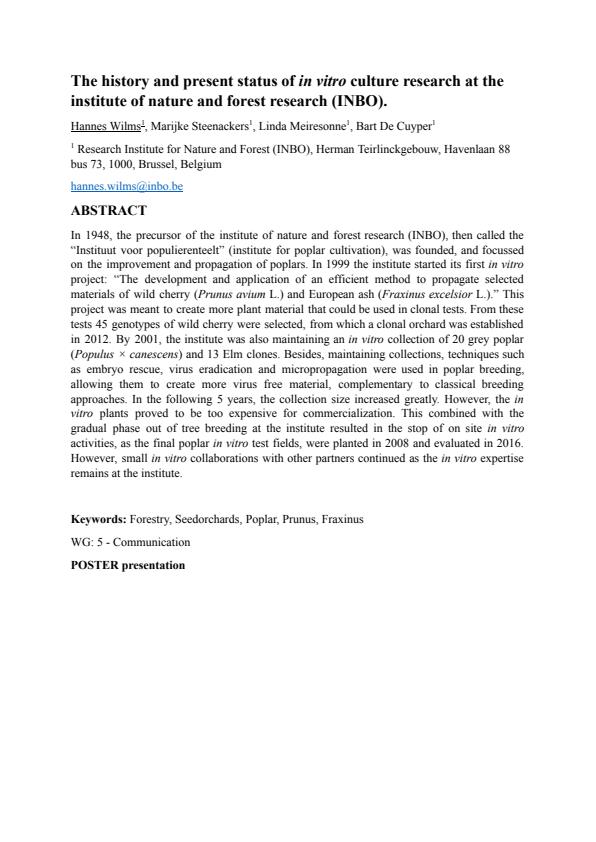The history and present status of in vitro culture research at the institute of nature and forest research (INBO).
Details
| Aantal pagina's | 1 |
|---|---|
| Pagina's (van-tot) | 107-107 |
| Type | Congres abstract in abstractproceedings |
| Categorie | Onderzoek |
| Taal | Nederlands |
Bibtex
@misc{d8eb3165-c613-4558-8d3f-aa3bd60c6396,
title = "The history and present status of in vitro culture research at the institute of nature and forest research (INBO).",
abstract = "In 1948, the precursor of the institute of nature and forest research (INBO), then called the “Instituut voor populierenteelt” (institute for poplar cultivation), was founded, and focussed on the improvement and propagation of poplars. In 1999 the institute started its first in vitro project: “The development and application of an efficient method to propagate selected materials of wild cherry (Prunus avium L.) and European ash (Fraxinus excelsior L.).” This project was meant to create more plant material that could be used in clonal tests. From these tests 45 genotypes of wild cherry were selected, from which a clonal orchard was established in 2012. By 2001, the institute was also maintaining an in vitro collection of 20 grey poplar (Populus × canescens) and 13 Elm clones. Besides, maintaining collections, techniques such as embryo rescue, virus eradication and micropropagation were used in poplar breeding, allowing them to create more virus free material, complementary to classical breeding approaches. In the following 5 years, the collection size increased greatly. However, the in vitro plants proved to be too expensive for commercialization. This combined with the gradual phase out of tree breeding at the institute resulted in the stop of on site in vitro activities, as the final poplar in vitro test fields, were planted in 2008 and evaluated in 2016. However, small in vitro collaborations with other partners continued as the in vitro expertise remains at the institute.
",
author = "Hannes Wilms and Marijke Steenackers and Linda Meiresonne and Bart De Cuyper",
year = "2024",
month = apr,
day = "22",
doi = "",
language = "Nederlands",
publisher = "Instituut voor Natuur- en Bosonderzoek",
address = "België,
type = "Other"
}

